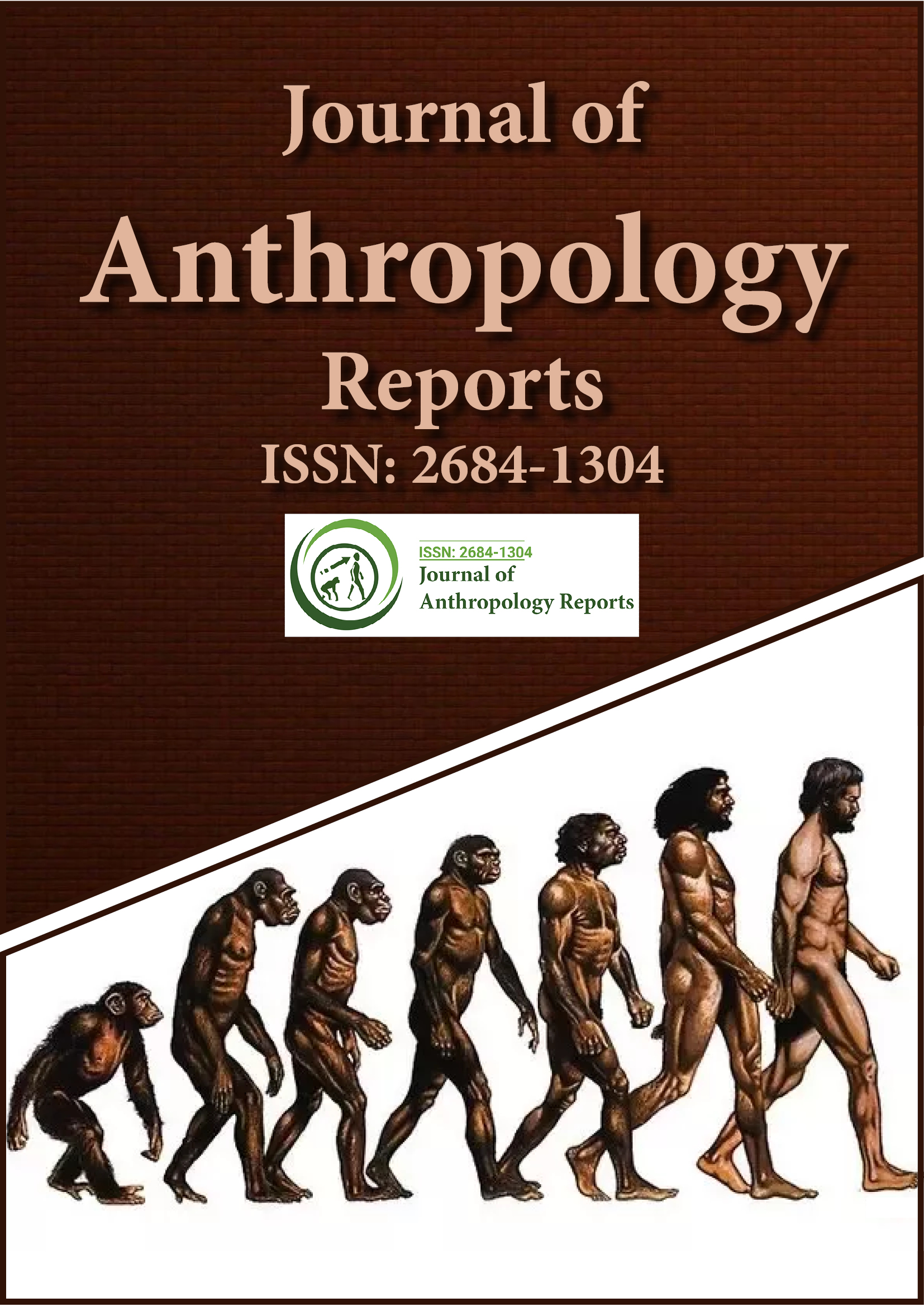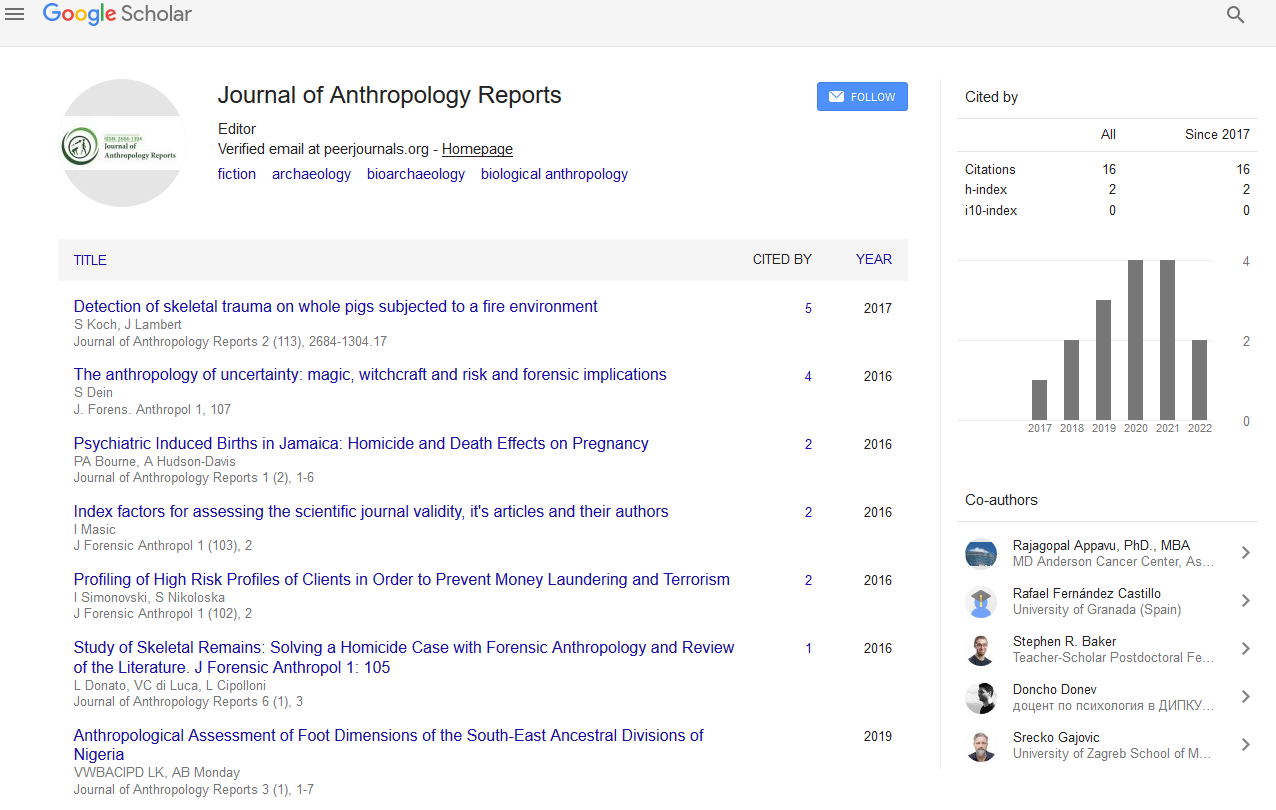Indexed In
- RefSeek
- Hamdard University
- EBSCO A-Z
Useful Links
Share This Page
Journal Flyer

Open Access Journals
- Agri and Aquaculture
- Biochemistry
- Bioinformatics & Systems Biology
- Business & Management
- Chemistry
- Clinical Sciences
- Engineering
- Food & Nutrition
- General Science
- Genetics & Molecular Biology
- Immunology & Microbiology
- Medical Sciences
- Neuroscience & Psychology
- Nursing & Health Care
- Pharmaceutical Sciences
Perspective - (2022) Volume 5, Issue 1
Perspective of the Processes of Action and Social Transformation
Jacqueline Bradley*Received: 04-Jan-2022, Manuscript No. JFA-22-15492; Editor assigned: 06-Jan-2022, Pre QC No. JFA-22-15492; Reviewed: 18-Jan-2022, QC No. JFA-22-15492; Revised: 25-Jan-2022, Manuscript No. JFA-22-15492; Published: 31-Jan-2022, DOI: 10.35248/2684-1304.22.5.118
About the Study
In the social lores, the study of meanings has been border line although anthropology, from its emblematic perspective, has given them a central part in explaining actions and conducts, as well as in the creation of artistic vestiges of mortal beings. The same has happed with psychology, whose object of study is inscribed within the internal world of the subject where meanings constitute a abecedarian analysis niche in the understanding of the psyche and its impact on the diurnal practices of individualities. Still, it must be said that, although not in a methodical way, meanings have been present in the comprehensive tradition of sociology under the protection of the configurations and relational generality of society, indeed though historically this generality has been at a disadvantage in the face of a further structural and positivist generality of the social.
In fact, despite studies on social movements, and in general those studies that deal with social action, contemporary sociology-with the exception maybe of studies on political culture and the so- called French pragmatist sociology-has not repaired with adequacy in the heuristic eventuality of meanings for the understanding of action; This elision is also reflected, for illustration, in the borderline position of exploration and reflections on political converse. The anteceding indicates that meanings haven’t been absent from logical treatment in the social lores, but clearly their approach has been scarce and borderline. Likewise, in general, the epistemological and methodological treatment of meanings in the social lores has sought to shirk subjectivity. On the one hand, this is accessible if one takes into account that disciplines similar as linguistics or semiotics-which historically constitute the natural field of study of meaning, have been treated from a literal point of view, articulating a sociocultural perspective of the significance that impacts the way of understanding cognition and the meanings as a result of it.
On the other hand, the illusion of the private in the treatment of meanings in the social lores has also been due to the ascendance of a rational generality of the subject that reduces the heuristic value of the binary appetite- aversion as a base order to explain the unfolding of the subject. Will as a response to the dialectical pressure between necessity and freedom inferred in all mortal actuality. This principally restricts the emotional implicit in the independent capacity of the subject and its part in the configuration of social reality. For this reason, it’s considered that the social lores have avoided understanding the subject as a mortal subject, that is, as a social being that’s also, and in a introductory, essential and necessary way, an individual, that is, a private being. Grounded on the below, this textbook has the purpose of theoretically exploring the relationship between the generation of private meanings and the part of these meanings in the literal constitution of the social via their deployment in action and in the processes of social metamorphosis deduced from energy natural to social reality. To understand the generation of private meanings we calculate on the developments of neurophenomenology also known as New Cognitive Science or enactivism and to understand the part of meanings in the literal constitution of reality and the processes of change within it, we calculate on in the heritage of critical epistemology.
Citation: Bradley J (2022) Perspective of the Processes of Action and Social Transformation. J Anthropology Rep. 5:118.
Copyright: & copy; 2022 Bradley J. This is an open access article distributed under the terms of the Creative Commons Attribution License, which permits unrestricted use, distribution, and reproduction in any medium, provided the original author and source are credited.

